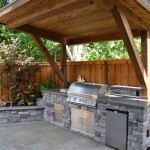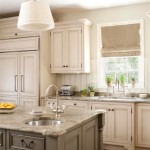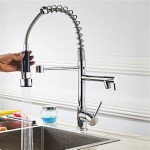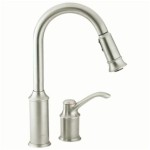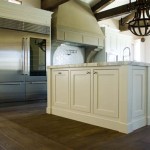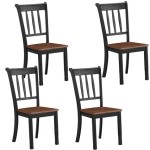Cost to Build a Kitchen
Renovating or building a kitchen is a significant investment that can dramatically enhance a home's value and functionality. Understanding the various factors influencing the overall cost is crucial for effective budgeting and project planning. This article will explore the key cost drivers involved in kitchen construction, offering a comprehensive overview of the financial considerations.
Kitchen Size and Layout
The size and layout significantly impact the overall project cost. Larger kitchens naturally require more materials, extending construction timelines and labor costs. Complex layouts involving non-standard shapes or intricate designs also contribute to increased expenses. For example, incorporating an island or peninsula necessitates additional cabinetry, countertops, and potentially plumbing or electrical work, adding to the final price.
Furthermore, removing walls to create an open-concept kitchen introduces structural considerations that can impact the budget. Engineering assessments, permits, and specialized labor for structural modifications often add considerable expense. Careful consideration of the desired layout and its implications on structural elements is vital for accurate cost estimation.
Cabinetry and Countertops
Cabinets and countertops constitute a substantial portion of the kitchen budget. Material selection plays a pivotal role in determining cost. Stock cabinets, typically made of laminate or particleboard, represent the most affordable option. Semi-custom cabinets offer more design flexibility and higher-quality materials, increasing the price point. Custom cabinets, crafted to specific design specifications using premium materials, are the most expensive option, allowing for complete personalization but significantly impacting the budget.
Countertop materials similarly influence cost. Laminate countertops are budget-friendly, while engineered stone, natural stone (granite, marble, quartzite), and concrete represent progressively higher price points. The complexity of the countertop design, such as edge profiles and integrated sinks, further impacts the cost. Selecting materials that balance desired aesthetics, durability, and budget considerations is essential.
Appliances and Fixtures
Appliances and fixtures contribute significantly to the overall kitchen cost. The choice of appliances, ranging from basic models to high-end professional-grade equipment, directly affects the budget. Refrigerators, ovens, cooktops, dishwashers, and microwaves are essential considerations, with prices varying based on features, brand, and energy efficiency.
Fixtures, including sinks, faucets, lighting, and hardware, also play a role in cost determination. The style, finish, and features of these elements influence the overall expenditure. Opting for high-end designer fixtures will invariably increase the budget compared to standard or builder-grade options. Careful selection and comparison shopping for appliances and fixtures can help manage costs effectively.
Labor and Installation
Labor and installation represent a substantial portion of the overall kitchen building or renovation cost. Demolition, plumbing, electrical work, flooring installation, cabinet installation, countertop installation, and appliance installation all require skilled labor. The complexity of the project and the local labor market influence the hourly rates and overall labor costs.
Obtaining multiple quotes from reputable contractors is essential for comparing pricing and ensuring competitive rates. Clearly defined project scope and detailed specifications in the contract help prevent unexpected cost overruns. Effective communication with contractors throughout the project is crucial for staying informed about progress and managing potential cost variations.
Permits and Inspections
Building permits and inspections are necessary for most kitchen projects, ensuring compliance with building codes and safety regulations. Permit fees vary depending on the project scope and local jurisdiction. Inspections conducted throughout the project add to the overall cost. Factoring these expenses into the budget is essential for accurate cost estimation.
Delays in permit approvals or failed inspections can lead to project delays and increased labor costs. Working closely with contractors who understand local regulations and permitting processes helps streamline the project and minimize potential delays. Understanding permit requirements and associated costs is vital for effective project management.
Additional Costs
Other costs to consider include design fees if professional design services are utilized. These fees can vary based on the designer's experience and the complexity of the project. Contingency funds should also be incorporated into the budget to account for unforeseen issues or changes that may arise during the project. A contingency fund typically represents a percentage of the overall project cost, providing a buffer for unexpected expenses.
Finally, consider the cost of temporary kitchen facilities or eating arrangements during the renovation period. Depending on the project duration, meals may need to be prepared elsewhere or takeout options utilized, adding to the overall project expenses. Planning for these additional costs ensures a more realistic budget and a smoother renovation process.

What Is The Cost Of Building A Modular Kitchen Magickhome

Kitchen Installation Cost 2025 Data Angi

Kitchen Installation Cost 2025 Data Angi

Cost To Build A Kitchen In 2024 King Installation

Modular Kitchen Cost How To Reduce It Fit Into Budget

New Kitchen Cost Breakdown 2025 Checkatrade

Low Cost Modular Kitchen Price Best Designs Application And More

Modular Kitchen Cost How To Reduce It Fit Into Budget

How Much Does It Cost To Build A Commercial Kitchen Mathias Foodservice Equipment Company

How Much Does It Cost To Build A Kitchen Island The Dedicated House

